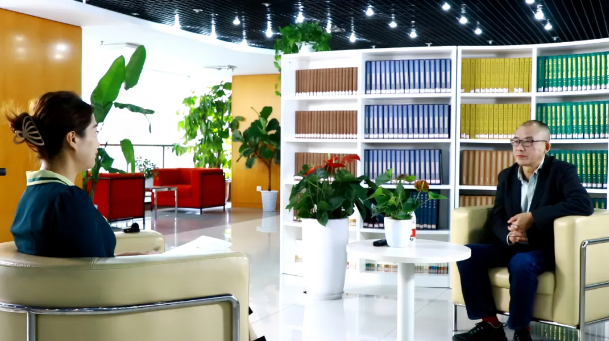 Guest Profile
Guest Profile

Professor Tang Yingshan, who graduated from the Central Academy of Fine Arts in 1990 with a major in Mural Painting, began his career as a lecturer at the School of Art of the Open University of China (OUC) in the same year. In 2020, he was honoured as a "Famous Teacher in Beijing." He has also held positions as a visiting professor at Harbin University of Science and Technology, a supervisor for Master's students in Fine Arts at Gannan Normal University, and has been awarded the 16th Beijing Higher Education Outstanding Teacher Award. He initiated the Interior Art Design programme in 2009 and led a research project titled "Construction of a Moodle Platform for the Appreciation and Creation of Traditional Chinese Landscape Paintings," funded by the China National Arts Fund, in 2017. Since 2019, he has been running a course "Oil Painting for Beginners" as part of a societal aesthetic education initiative.
Q: Over your many years in teaching, what significant changes have you experienced? What advice do you have for the career development of OUC teachers?
A: I have witnessed dramatic transformations in distance education technology.
As a teacher at the OUC, I believe it's crucial to integrate one's professional development, academic discipline, and information technology. Having taught for 34 years, I initially focused on fine arts research and creation for the first 12 years. However, I realised that excelling within the same field nationally was challenging. In the subsequent 20 years, I shifted my focus to integrating fine arts with educational technology, achieving national prominence.
Q: How have you popularised oil painting as an art discipline and introduced it at the senior university?
A: After joining the OUC, formerly known as the Central Radio and TV University, and recognising its mission to educate the public, I gradually realised that, through my over three decades of experience in distance education, oil painting could be effectively taught to a wider audience, providing practical and effective outcomes.
Around 2019, leveraging 20 years of online education experience, I transitioned to oil painting education. Through five years of practice, the oil painting course design has emphasised the characteristics of fine arts, such as demonstrability, group dynamics, and interactivity, integrating these elements into the design of distance learning courses. Additionally, it has leveraged the conveniences offered by new media. The course has been well-received, with over 5.8 million views and 40,000 registered learners in China and globally, demonstrating the effective use of modern technology in popularising oil painting.
At present, the Seniors University of China (SUC) has also been established within the OUC. Since last year, I have been offering a beginner's oil painting course aimed at the general public at the SUC. This course utilises the latest information technologies, including VR, live-streaming, and real-time interaction, adopting a teaching model that synchronises online and offline live-streaming. I recall that we have conducted two sessions of the course, with 45 students attending the face-to-face classes and 170,000 online learners participating from across China and around the world, achieving significant results. My experience tells me that this method of popularising oil painting and aesthetic education through information technology is particularly well-suited to China's reality. As we all know, China is vast and diverse, with significant disparities in education levels and resources between the east and west. For regions lacking access to high-quality fine arts or aesthetic education resources, this is an excellent way to receive aesthetic education.
Q: What is your outlook for the university, especially in terms of aesthetic education?
A: As we know, the OUC is entering a new era of digital university construction. In this era, I believe that our arts or aesthetic education will not only achieve great success in the field of fine arts but also in other fields that are more popular with the general public, such as music and dance. My recent teaching practice in oil painting art has sufficiently demonstrated that our arts or aesthetic education, by leveraging the latest advancements in online information technology, will undoubtedly have a very exciting and glorious future.
Finally, I sincerely hope that the OUC will shine in the areas of social education, senior education, and specialised education, ushering in a new era of digital university construction.